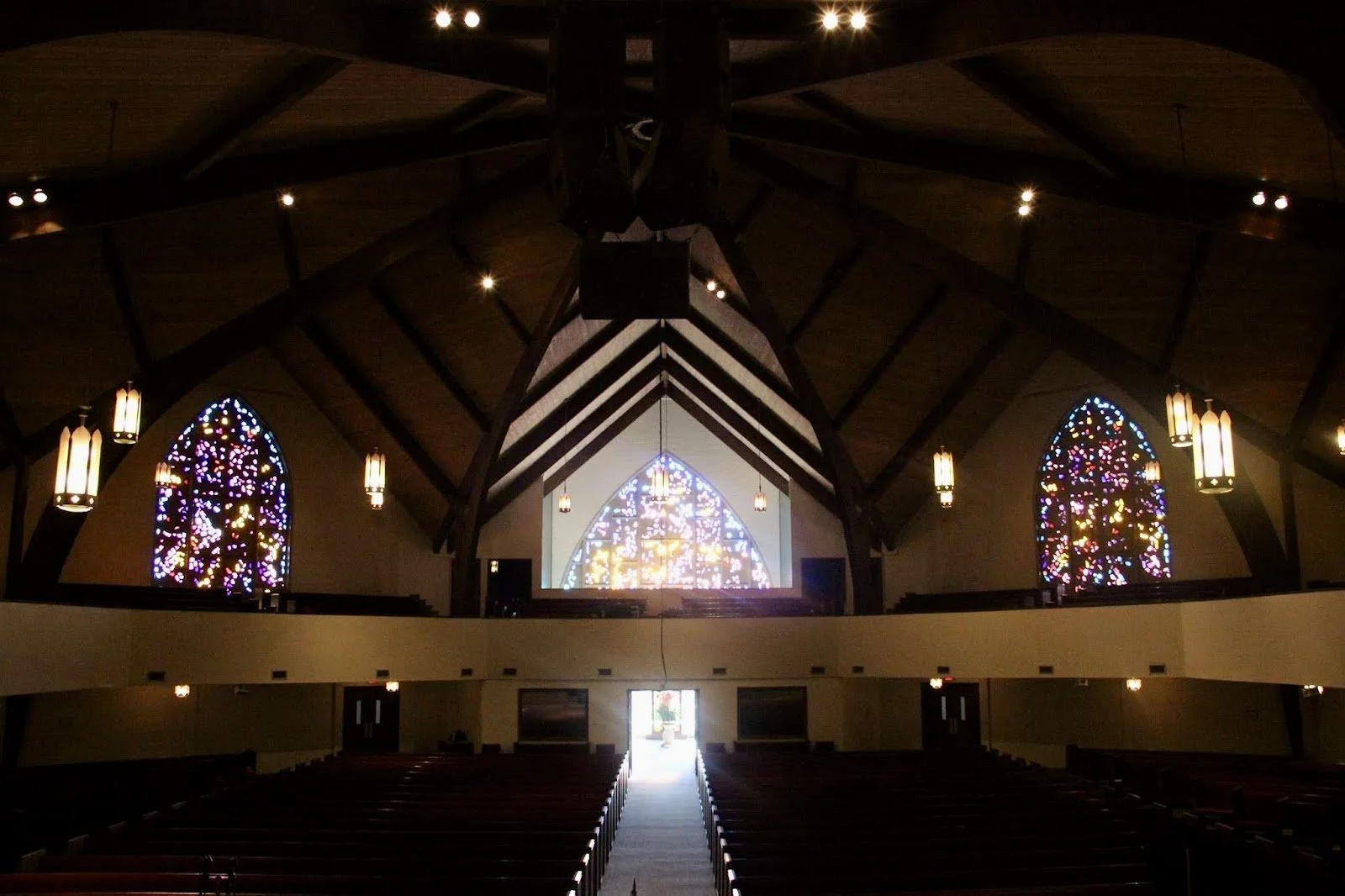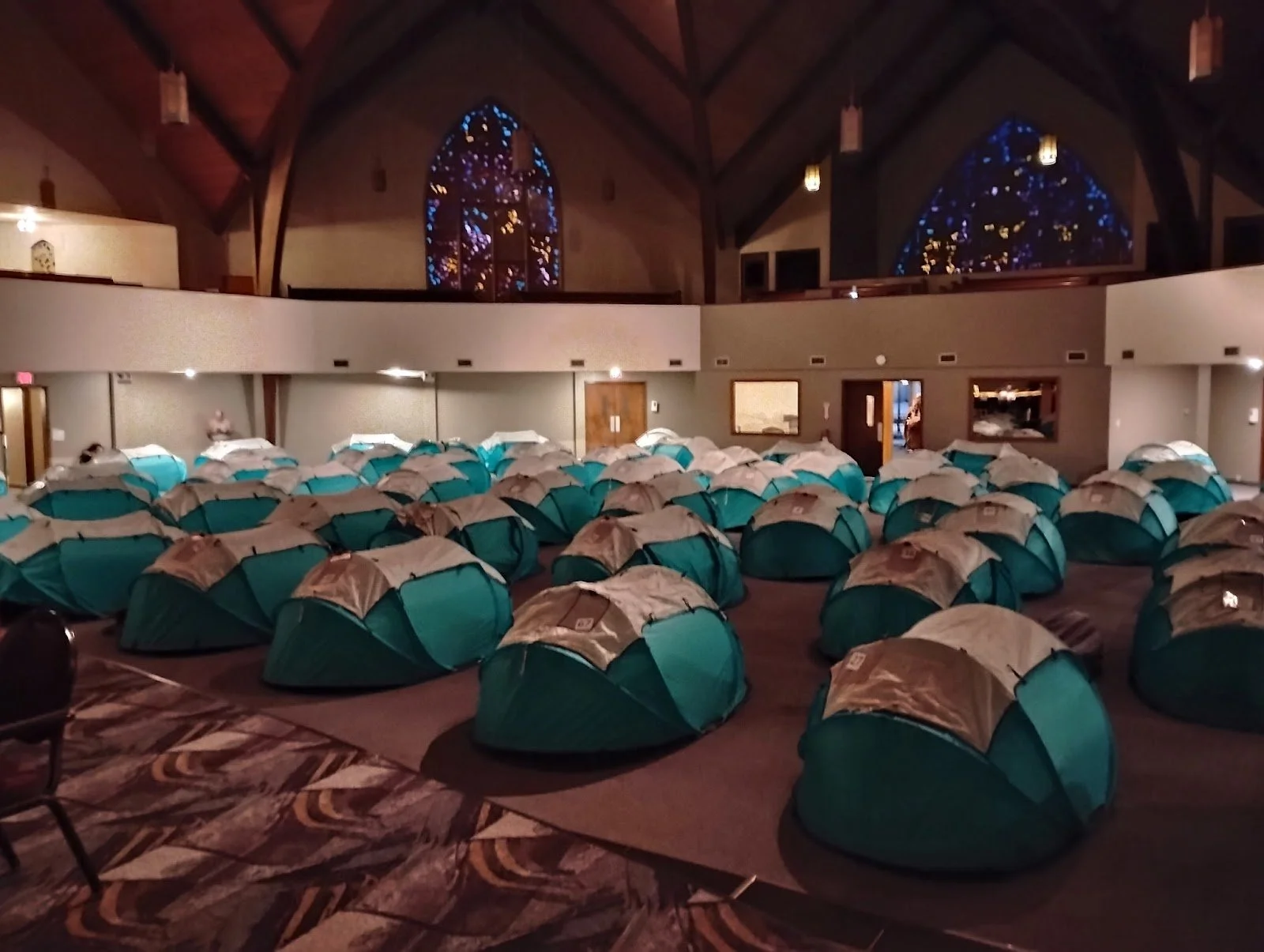Matthew 17:1-9
Six days later, Jesus took with him Peter and James and his brother John and led them up a high mountain, by themselves. And he was transfigured before them, and his face shone like the sun, and his clothes became bright as light.
Suddenly there appeared to them Moses and Elijah, talking with him. Then Peter said to Jesus, “Lord, it is good for us to be here; if you wish, I will set up three tents here, one for you, one for Moses, and one for Elijah.”
While he was still speaking, suddenly a bright cloud overshadowed them, and a voice from the cloud said, “This is my Son, the Beloved; with him I am well pleased; listen to him!” When the disciples heard this, they fell to the ground and were overcome by fear.
But Jesus came and touched them, saying, “Get up and do not be afraid.” And when they raised their eyes, they saw no one except Jesus himself alone.
As they were coming down the mountain, Jesus ordered them, “Tell no one about the vision until after the Son of Man has been raised from the dead.”
“It was the best of times, it was the worst of times.” That’s how Charles Dickens opens A Tale of Two Cities.
It’s also how comedian Anthony Griffith begins a story on The Moth about the season when his career was taking off and his daughter was dying. He had just moved his family to Los Angeles for stand-up. And almost immediately he got two phone calls.
The first was from a talent coordinator offering him his first appearance on The Tonight Show with Johnny Carson. The moment he moved there for.
The second was from his daughter’s doctor telling him her leukemia had returned.
It was the best of times.
It was the worst of times.
During the day, Anthony cared for his daughter — watching the heart monitor, giving her medication, driving back and forth for blood work and platelets.
At night, he was in comedy clubs, working and reworking his set, trying to get it perfect for The Tonight Show.
Finally the night came. He’s backstage waiting to be introduced, thinking to himself, Don’t screw this up. Don’t screw this up. The curtain goes up. He is terrified. And for the next six minutes he doesn’t even remember what he said — but he gets six applause breaks. He cooked, as the kids say.
In the parking lot Johnny Carson tells him, “You’re extremely funny. Start working on your second Tonight Show. I want you back.”
It was the best of times.
But by the time the official call came for that second appearance, his daughter had been admitted to the hospital.
It was the worst of times.
Peter, James, and John knew that rhythm too — the worst of times pressing in on the best. Because just six days earlier Jesus had told them that everything was about to fall apart. That he was going to Jerusalem to suffer and be killed. And that if they were going to follow him, their road would look the same.
These were men who had already left their homes, their work, their security for him. And now the one they trusted most was talking about crosses and death. They had six long days of despair to sit with that.
But on that sixth day, Jesus took Peter, James, and John up a mountain. And suddenly his appearance changes — his face shining, his clothes dazzling white. And he’s not alone. Moses and Elijah are there — the heroes of their faith, the ones their parents told them stories about at bedtime. No wonder Peter blurts out, “Lord, it is good for us to be here.”
Of course it is.
This would be like us seeing Abraham Lincoln, Martin Luther King Jr., and Oprah standing together atop the Rockies. You’d want to set up camp and stay awhile.
After six long, confusing days — here it is — a moment that makes sense of everything.
Now they see who Jesus really is. Not just another teacher of the law. Not just another prophet pointing to the promises they made with God. But the one who is the fulfillment of both.
It is the best of times. And Peter wants to hold on to it.
While Peter is still talking, a cloud comes and covers the mountain. And a voice — “This is my Son, the Beloved… listen to him.” And just like that, the moment is over. The disciples fall to the ground, terrified.
But Jesus comes to them. He touches them. “Get up. Do not be afraid.” Because it is time to go back down the mountain. Back to the valley. Back to the hard days he has already told them are coming.
The best of times gives way to what they could only imagine would be the worst of times. This is not the mountain where the story ends: the cross and the empty tomb are still ahead.”
That’s how life is.
You plan a wedding, get married — and then you find yourself signing divorce papers.
You finally hold the baby you prayed for — and then you’re walking through postpartum depression.
Your loved one makes it through chemo and radiation and is declared cancer free — and six months later the cancer is back.
The best of times. The worst of times. Over and over again.
And just like Peter, James, and John, we too can faint — knocked down by the fear or sheer exhaustion of it all. The constant movement from the best of times to the worst of times, the interruptions that come whether we want them or not, can bring us to our knees.
And that is exactly where the disciples are in this story. But when they look up, the only person standing there is Jesus. That’s what our text tells us: “When they looked up, they saw no one except Jesus himself.”
Jesus himself, ready to go back into the valley with them.
Jesus himself, ready to face the difficult days with them.
Jesus himself, who is with his disciples — then and now — at every moment of the journey.
And we see exactly this in Anthony’s life.
By the time he appeared on The Tonight Show for the third time, Brittany had died — not yet three years old. For ten years, Anthony says, he and his wife walked around like zombies, shells of who they once were. It was their church community that endured those dark days with them. Someone eventually suggested that Anthony teach Sunday School. He knew it wouldn’t bring Brittany back, but not long after he said he began to feel her presence more powerfully than ever.
About that same time, The Moth called and asked him to tell a story. He knew which one it had to be.
In the memoir he wrote with his wife, Anthony says, “Life is cruel sometimes, and it’s okay to have whatever emotion you have when you lose someone you love. If you want to cry, if you want to get mad, if you want to shout out — God’s shoulders are big enough. It’s okay. God still has you.”
I hope and pray that we are that kind of extraordinary community: gathered by Jesus, helping one another endure the dark days we all will face, and catching small mountaintop glimpses of his glory along the way.
That this place is one where, whether you are in the best of times or the worst of times, you find yourself saying, “It is good for us to be here. It is good for me to be here”
Because I believe it is.
When we get it right, we walk with one another through a whole life: from the first promises spoken at baptism, to weddings and graduations, to hospital rooms and funeral homes,
and everything in between.
Above all, rest in this truth and promise: when we leave this place and come down from this mountain, or any other, all that is left for us, for you, is Jesus himself.
Jesus himself, coming to us and raising us up, again and again,
never leaving us to face the perils and the joys of this life alone.
Amen.



